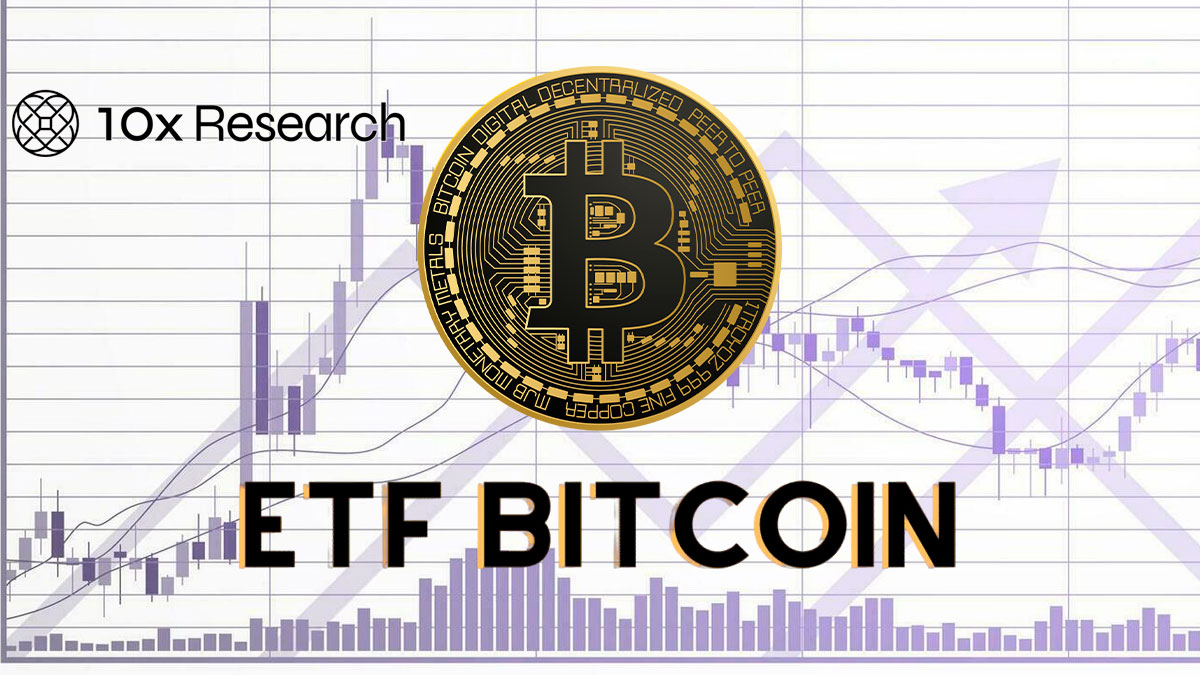Unraveling the Mystery of Bitcoin ETF Inflows: Long-Term Investments vs. Short-Term Arbitrage
A recent study by 10x Research, a data analytics firm, has shed new light on the behavior of investors in the U.S. Bitcoin Exchange-Traded Funds (ETFs). The research revealed some intriguing insights into the motivations behind Bitcoin ETF inflows, with only 44% of the total inflows being attributed to long-term investment strategies.
Short-Term Arbitrage: The Dominant Force in Bitcoin ETF Inflows
The remaining 56% of inflows, however, were found to be driven by short-term trading strategies, with arbitrage being the most prevalent. Arbitrage is a trading strategy that involves exploiting price discrepancies between two or more markets. In the context of Bitcoin ETFs, investors are profiting from the price differences between the spot Bitcoin market and the Bitcoin futures market.
The Mechanics of Arbitrage in Bitcoin ETFs
The Bitcoin spot market refers to the buying and selling of actual Bitcoin, while the Bitcoin futures market is where contracts to buy or sell Bitcoin at a future date are traded. When there is a price difference between these two markets, arbitrage opportunities arise. For instance, if the price of Bitcoin in the spot market is lower than the price of a Bitcoin futures contract, an arbitrage trader can buy Bitcoin in the spot market and sell the same quantity in the futures market, thus locking in a profit.
Conversely, if the price of Bitcoin in the futures market is lower than the spot market, arbitrage traders can sell Bitcoin in the spot market and buy the same quantity in the futures market, pocketing the difference.
Implications for Individual Investors
For individual investors, these findings suggest that the Bitcoin ETF market is not just a venue for long-term investment but also a playground for short-term traders. This could introduce additional volatility to the Bitcoin ETF market, making it more challenging for long-term investors to navigate.
- Increased price volatility: Short-term arbitrage strategies can lead to rapid price swings in the Bitcoin ETF market, making it harder for long-term investors to maintain their positions.
- Heightened market complexity: Arbitrage opportunities require a deep understanding of the intricacies of the Bitcoin spot and futures markets, adding another layer of complexity to an already complex asset class.
- Increased competition: The presence of short-term traders in the Bitcoin ETF market can intensify competition, potentially driving up transaction fees and reducing the profitability of long-term investment strategies.
Global Implications
Beyond the individual investor level, these findings have broader implications for the global financial markets. The dominance of short-term trading strategies in the Bitcoin ETF market could:
- Increase the interconnectedness of financial markets: Arbitrage strategies require simultaneous transactions in multiple markets, potentially leading to increased interdependence between financial markets.
- Heighten systemic risk: The rapid price movements associated with short-term arbitrage strategies can amplify market volatility and increase the risk of systemic shocks.
- Encourage regulatory scrutiny: The prevalence of short-term trading strategies in the Bitcoin ETF market may attract the attention of regulators, who may seek to impose stricter rules on trading activities to mitigate risks.
Conclusion
The findings from 10x Research underscore the complex and dynamic nature of the Bitcoin ETF market. While long-term investment remains a significant driver of inflows, short-term trading strategies, particularly arbitrage, are becoming increasingly prevalent. This trend has important implications for both individual investors and the global financial markets, necessitating a deeper understanding of the Bitcoin spot and futures markets and the risks they present.
As a responsible investor, it is essential to stay informed about these developments and adapt your investment strategies accordingly. This might involve diversifying your portfolio, deepening your understanding of the Bitcoin market, and engaging with regulatory developments. By doing so, you can navigate the evolving landscape of the Bitcoin ETF market and maximize your chances of success.





